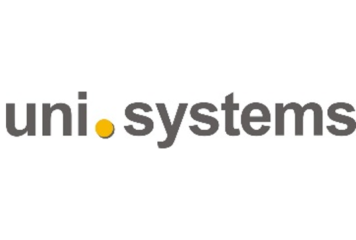Robots Need Not Apply: New ManpowerGroup Research Finds Human Strengths are the Solution to the Skills Revolution
Developing the best blend of technical skills and soft skills is the solution to the Skills Revolution for individuals and employers alike. As technology transforms organizations, skills needs are changing rapidly and companies are struggling to find the talent they need. ManpowerGroup’s (NYSE:MAN) report — Robots Need Not Apply: Human Solutions in the Skills Revolution — surveyed 20,000 employers across 42 countries on the impact of automation on headcount, the functions most impacted and the soft skills that are both of greatest value and hardest to find.
The report finds that as companies go digital, in the near-term most will need more people, not fewer.
Eighty six percent of employers globally say their headcount will increase or remain flat in the next two years because of automation. Looking inside organizations, the impact varies by function: IT comes out on top as organizations invest in digital skills and Frontline & Customer-Facing functions follow close behind. In contrast, Administrative and Office functions expect the greatest decrease in headcount as a result of automation.
In Greece, 87% of employers plan to maintain or increase headcount. Frontline & Customer-Facing functions and Information Technology (IT) expect the greatest increase in headcount as companies invest in digital skills. In contrast, Administrative & Office functions expect the greatest decreases in headcount as a result of automation.
Overall, the rise in consumerism and the value companies now place on customer service is increasingly evident in the digital world and human strengths are more valued than ever before. More than half of Greek companies surveyed say collaboration is their most valued soft skill followed by communication skills, written and verbal, and organization.
“Digitization is happening at an unprecedented pace and every industry and function will be impacted,” said Jonas Prising, ManpowerGroup Chairman & CEO. “This is good news for people — providing they have the right skills mix to augment rather than compete with technology. As employers, we need to identify skills adjacencies that create clear career paths for people, from this job to that job, and we must develop faster reskilling programs with shorter bursts of on-the-job, experiential training. We’re partnering with other employers to do just that. We’re reskilling under-employed textile-workers to work with high-tech materials like carbon fiber in Italy for the world’s most advanced motorsport manufacturers, and we’re upskilling military veterans in digital manufacturing in the U.S. Helping people upskill and future-proof themselves will be the defining challenge of our time. Identifying in-demand skills and providing access to employment is the solution for all of us in the Skills Revolution.”
The best blend of high-tech and high-touch will be the combination of core human strengths with technical and digital know-how.
Robots Need Not Apply: Human Solutions in the Skills Revolution offers practical recommendations to help employers adjust their workforce strategy to prepare for digital transformation.
**Human strengths include traditional personal skills such as communication, collaboration and creativity as well as human characteristics such as empathy, relationship building, cognitive ability, curiosity and learning. Human Strengths are skills that enhance the technology and reduce the threat of replacement due to automation





